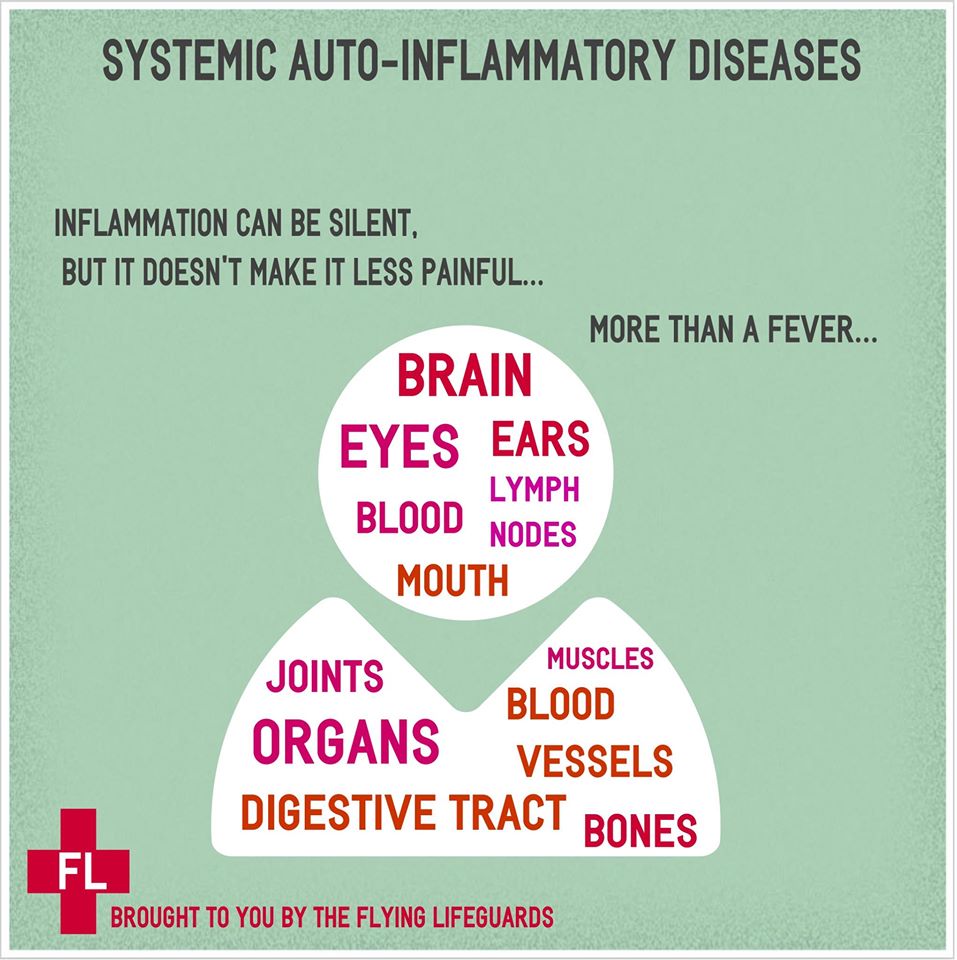Autoinflammatory vs Autoimmune Diseases
Coined less than 20 years ago, the word autoinflammatory is often confused with autoimmune—so, what’s the difference?
 When we think of the word autoimmune, most people understand that it means your body is attacking itself the way it attacks invaders, like bacteria and viruses. These autoimmune responses run on a scale from hay fever’s itchy eyes and runny nose, to juvenile idiopathic arthritis’ swollen joints, to Lupus, where your body attacks its own healthy tissues, including the joints, kidneys and skin. These responses are directed attacks to specific parts of the body.
When we think of the word autoimmune, most people understand that it means your body is attacking itself the way it attacks invaders, like bacteria and viruses. These autoimmune responses run on a scale from hay fever’s itchy eyes and runny nose, to juvenile idiopathic arthritis’ swollen joints, to Lupus, where your body attacks its own healthy tissues, including the joints, kidneys and skin. These responses are directed attacks to specific parts of the body.
Autoinflammatory diseases on the other hand, are dysfunctions of your ‘generalized immune system.’ So, what exactly does that mean? It means that, in these conditions, instead of specific, targeted attacks on parts of your body, your entire body lights up to get rid of invaders; the idea being that your immune system is responding as if you’re sick. The clearest example is a fever: imagine your immune system never turns off and your body spikes high fevers at random times.
Because of the rare nature of these conditions and the often common symptoms they present (fever, rash and joint pain can be caused by many things) they are hard—often harder—for a non-expert doctor to identify. Children with these diseases can develop life-altering symptoms like hearing or vision deficits, chronic arthritis, kidney damage, inflammatory blood disease (like Macrophage Activation Syndrome) and more. Without diagnosis or treatment, a child’s quality of life can suffer and —and in very rare cases, even be cut short.
Are you a parent of a child with an autoinflammatory disease, or another chronic rheumatic condition? If so, it can make a world of difference to connect with other parents and families who understand what you’re experiencing. We would love to connect with you and invite you to join our Cassie + Friends Online Network today. You are not alone!
Learn more about the work Cassie + Friends is doing to support the rare and autoinflammatory disease community here.
Quick Summary
Autoimmune Diseases
- Directed response to specific parts of the body
- Body is attacking itself the way it attacks invaders (e.g., Bacteria & Viruses)
- Examples: Lupus, Juvenile Idiopathic Arthritis
Autoinflammatory Diseases
- Generalized response in whole body (e.g., like when you get a fever when you’re sick)
- More rare than Autoimmune Diseases
- Examples: TRAPS, Fever Syndrome
Edits and medically verified by: Dr Roberta Berard, MD FRCPC MSc, Head, Division of Rheumatology – Children’s Hospital, LHSC, Associate Professor of Pediatrics, Western University










Leave A Comment